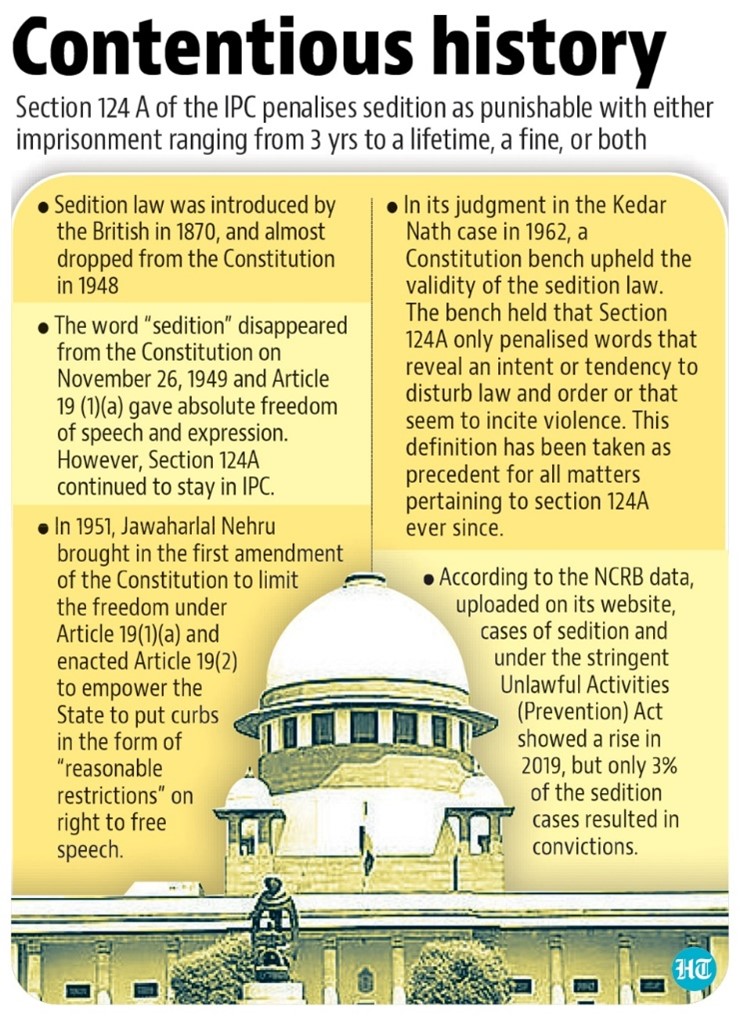IPC Section 124 A
2021 JUN 2
Preliminary >
Polity > Miscellaneous > Legislations

Why in news?
- Concerned over the misuse of India’s sedition law, IPC Section 124 A, the Supreme Court said that it will define the contours of the colonial era penal provision to indicate what does and does not constitute sedition.
- The apex court’s observations, came while hearing a case in which the Andhra Pradesh government has booked two Telugu news channels under Section 124A of the Indian Penal Code (IPC).
About Sec124A:
- Section 124A of the Indian Penal Code (IPC), which deals with sedition, was drafted by Thomas Babington Macaulay and included in the IPC in 1870.
- It states, "Whoever, words, either spoken or written, or by signs, visible representation, or otherwise, brings or attempts to bring into hatred or contempt, or excites or attempts to excite disaffection towards the Government established by law in India shall be punished with imprisonment for life, to which fine may be added, or with imprisonment which may extend to three years, to which fine may be added, or with fine."
- Sedition is a non-bailable offence. Punishment under the law varies from imprisonment up to three years to a life term and fine.
- A person charged under this law can't apply for a government job. They have to live without their passport and must present themselves in the court as and when required
Problems:
- Mahatma Gandhi called Section 124A “the prince among the political sections of the IPC designed to suppress the liberty of the citizen”.
- The sedition law has been weaponized to cramp free speech and muzzle dissent, and has been brazenly used to criminalize peaceful protestors.
- For example, in Uttar Pradesh where the state filed over 22 cases of sedition in the wake of a sexual assault case in Hathras last year — of the 22 cases, at least 18 were against unknown individuals.
- According to the National Crime Records Bureau (NCRB), the conviction rate in sedition cases was 3.3 per cent in 2019.
- However, the process often becomes the punishment as lower courts refuse to grant bail or examine the charges thoroughly.
- Governments have opposed scrapping of the law stating the need to retain the provision to effectively combat anti-national, secessionist and terrorist elements.
Prelims Question:
Consider the following statements on IPC Sec 124 A:
1.It pertains primarily to the offence of sedition against state.
2.It was inserted into Indian Penal Code after independence.
Which of the statements given above is/are correct?
(a)1 only
(b)2 only
(c)Both 1 and 2
(d)Neither 1 nor 2
Answer to Prelims question
